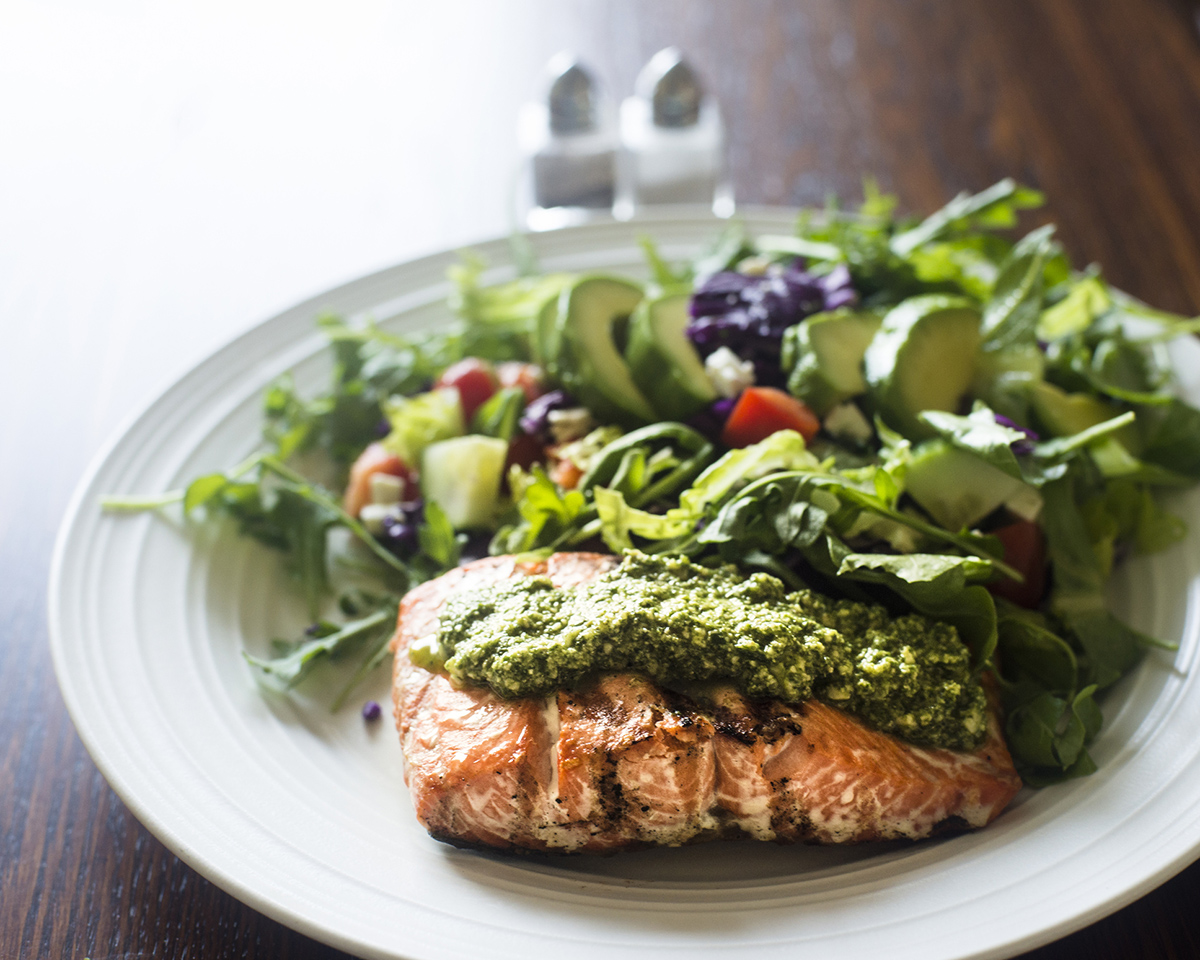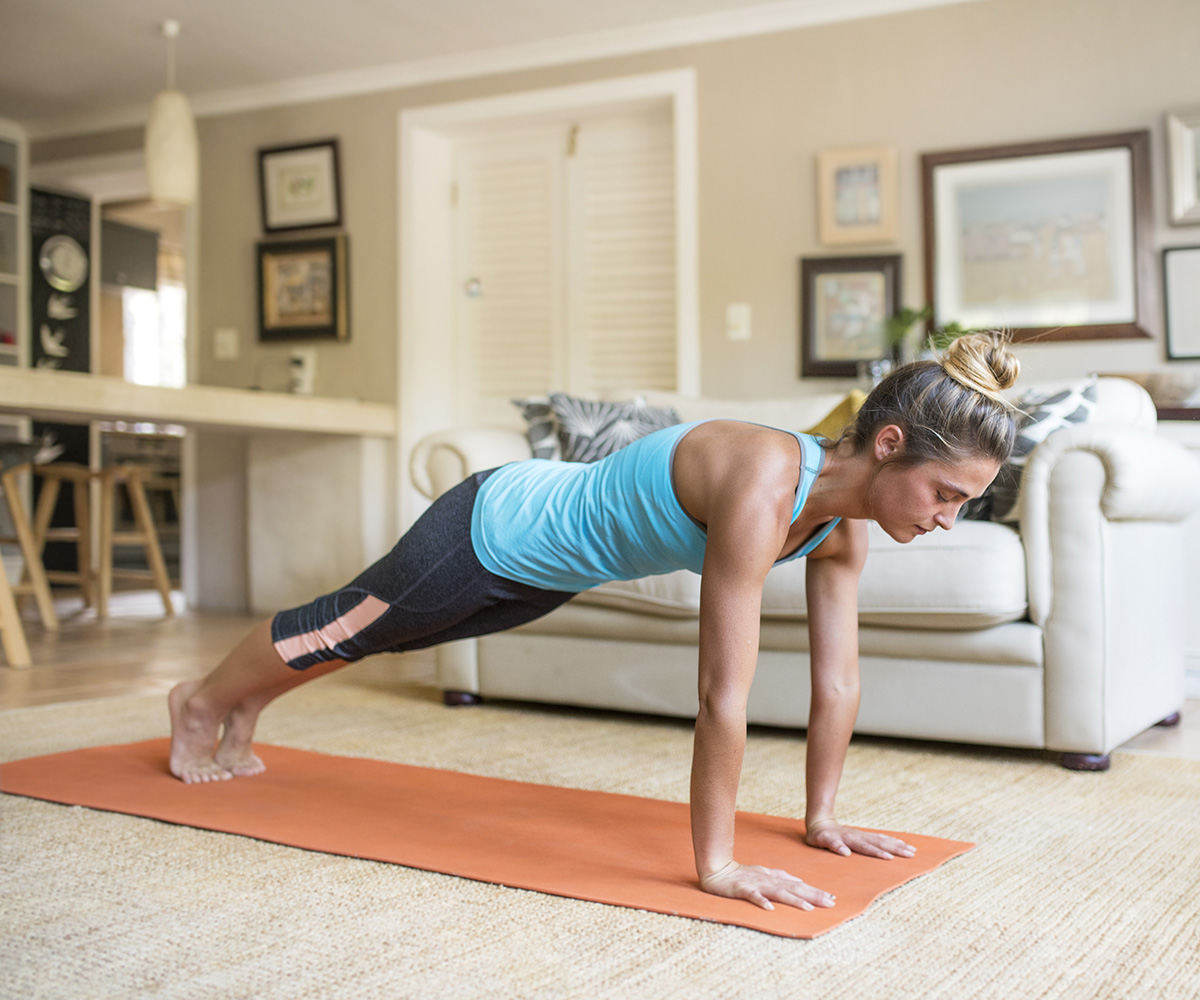There is a lot to love about autumn, including crisp mornings and the vibrant hues of changing leaves.
But a change of season always brings a few health concerns. Chillier temperatures are far friendlier to any cold and flu viruses floating through the air.
In addition to this, the cold, dry air reduces the healthy mucus that coats the areas of your respiratory system, leaving airways more susceptible to unwelcome microbial visitors, and as we spend more time indoors than outside, we’re much more likely to spread germs to each other.
Of course, this year we are also grappling with a new virus, Covid-19, which is causing illness, death and widespread alarm across the globe.
All of these factors make this month the perfect time to build a solid immune system for the months ahead.

When you sit down for each meal, check that your plate always has some fruit and veggies.
These are high in protective antioxidants and immune-enhancing compounds like vitamin C, so the more you eat, the stronger your system will be at defending against viruses, bacteria and other bugs. If you do still happen to catch a cold or flu, quality nutrition will help your body to fight it off much faster and you won’t feel so run down.
Gut health is another key foundation of immunity. Eating fresh produce and wholegrains will provide you with the fibre and prebiotics that your body needs, and then for a dose of probiotics, eat regular servings of foods like yoghurt, kimchi or sauerkraut.
Foods high in omega-3 fats such as oily fish, walnuts and flaxseed have a wonderful anti-inflammatory effect, and healing spices such as turmeric and ginger can really dial up the flavour while giving you a big hit of nourishment.

Mealtimes are not the only way to protect your body from the ills and chills of the cooler seasons.
Get outside often for vitamin D, which supports a healthy immune system and can protect against respiratory infections, or even better, do your exercise out in the fresh air instead of indoors.
Moving your body is great for overall health and immunity, but more is not necessarily better.
Training too hard or too frequently can hinder your health, suppress your immunity and make your body even more likely to pick up infections due to being low in energy and under stress.
Listen to your body’s signals and rest when you need to. If you have a mild cold, then it’s okay to do some moderate exercise, but if a fever is throwing your temperature out of kilter, it’s always best take a break and recuperate.
Powering through when your body is fighting infection can lead to it worsening or taking even longer to recover.
And of course, sleep is important.
It might seem like the time that you switch off, however sleep is actually a busy and vital time for the body to heal and do its restorative work.
Skimping on those quality seven to nine hours is not going to do your body any favours.
No matter how well you take care of yourself, it’s hard to avoid other people and public spaces where germs tend to be abundant.
Whether you love the gym, spend a lot of time around little ones, or are in a bustling office environment every day, there are lots of things you can do to protect yourself.

Because of the warm, moist environment perfect for bacteria and all the equipment that will have been handled by those before you, the gym is a place where you are highly likely to pick up bugs.
Even if you do an equipment-free class, you can still catch a cold from the people puffing and coughing around you.
Be vigilant about washing your hands before and after your workout, and show courtesy to others by wiping down all the equipment you use once you’re finished or choosing to stay at home when you’re not feeling well.
According to the Ministry of Health, washing hands thoroughly with hot water and soap is one of the best ways of controlling the spread of common infections, by killing a lot of bacteria and viruses.
Got sweat running down your face? Use your towel to wipe it off instead of your hands.
If you can’t see the gym being regularly cleaned, it might pay to ask what cleaning protocol is in place, or considering switching gyms.
To further reduce your risk of catching a bug, you can visit during off-peak times.

For those who spend a lot of time around little ones, you have to think about both your own health and theirs.
The immune system of a child is not as strong as that of an adult, and they aren’t the best at remembering proper hygiene habits.
“The most effective ways of protecting tamariki (children) from infectious diseases are to keep sick older children and adults away from our tamariki, keeping a sick child away from those who are unwell, and develop good hygiene habits that keep us healthy,” advises the Ministry of Health.
As an adult, role model healthy habits for children by frequently washing your hands with soap and encouraging them to join you, sneezing into your elbow, and demonstrating good use and disposal of tissues.
Keeping hand sanitiser in your bag or car can also be a lifesaver for those moments when you need to wash your hands but there are no facilities nearby.
At home, keep a bowl full of fresh fruit rich in vitamin C, such as oranges and kiwifruit, somewhere where they can reach it, and explain to them the amazing healing powers of eating fresh produce.

With the circulating air-con, lack of fresh air, and high concentration of people, it’s not surprising how quickly a cold can spread in the workplace.
In your own area, keep your desk clean and tidy, with spray or wipes nearby to regularly disinfect the equipment you touch the most such as your keyboard, phone, mouse or printer.
If your building allows for it, open a window or door as often as you can to let in some fresh air, or head outside on your lunch break instead.
Wash your hands or use hand sanitiser before eating, move around often, and don’t feel embarrassed or afraid to take time off when you aren’t well – it will help you to recover faster and keep others healthy too.
 Getty Images
Getty Images

